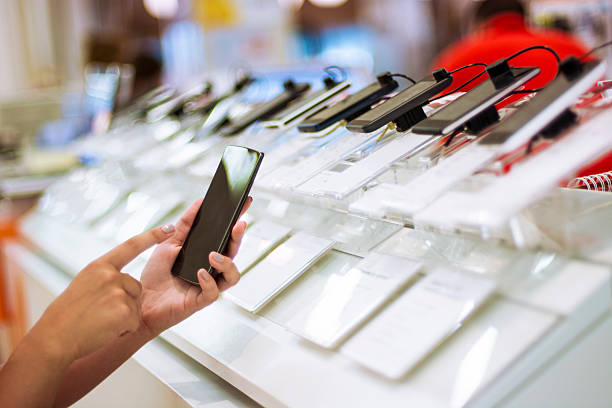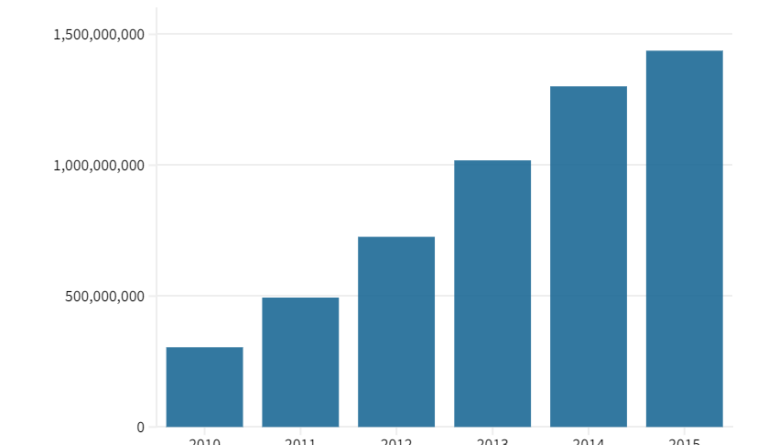
And they’re so confident about features they’re cramming into their phones that they think it’ll drive a new “supercycle” for the industry.
Samsung, Google, and Chinese firm Honor are among the names that are beefing up their latest handsets with AI-powered features for translating and summarizing conversations and taking and editing photos with the power of generative AI algorithms.
These are algorithms that are baked into the devices’ chips themselves, rather than accessed via the cloud. Samsung has gone big on generative AI with its Galaxy S24 Ultra smartphone.Google, too, has integrated AI directly into its latest Pixel phones.
Apple, meanwhile, is also reportedly exploring the addition of on-device AI features to the next iPhone, per the Financial Times.
This is all occurring during the Mobile World Congress, the biggest trade show for mobile technology, where major players like Samsung, Huawei, and Oppo, as well as chip companies like Qualcomm and MediaTek, are expected to highlight how AI is transforming personal devices. The idea of a “supercycle” in the smartphone market has been a long-time dream for manufacturers, especially in the wake of declining sales in recent years. In 2023, smartphone sales dropped to their lowest point in a decade, with only 1.16 billion units shipped.
When was the last smartphone supercycle?
Smartphone makers have been dreaming of a “supercycle” in their industry, driven by AI, after a bruising few years that saw device sales slow aggressively.
In 2023, smartphone sales fell to 1.16 billion units, the lowest point for unit shipments in a decade.
The last “supercycle” in smartphones happened between 2010 and 2015, where in five years the market grew fivefold from roughly 300 million units sold per year to 1.5 billion units, according to IDC data.

That came at a time when smartphones were just starting to become mainstream thanks to the emergence of widely used applications: Facebook, Instagram, WhatsApp, Uber, Snapchat, Twitter, and Candy Crush Saga, to name a few.
“The growth happened not just because Apple launched the iPhone, or because Google launched Android,” Francisco Jeronimo, vice president of data and analytics at research firm IDC, told CNBC.
“What really made it successful, that supercycle, was the fact that people were able to get the internet in their pocket,” Jeronimo said, in a phone interview with CNBC.
Smartphone shipments spike between 2010 and 2015
he smartphone market saw seismic growth in the early 2010s, with total shipments climbing from 300 million to over 1.5 billion in the space of five years.

However, experts like Ben Wood, chief analyst of CCS Insight, believe that the unveiling of the iPhone was the last major disruption in the industry, and since then, there have been fewer groundbreaking developments. Nevertheless, major smartphone players are banking on AI to drive a new supercycle. Samsung, for example, believes that AI will usher in a new era of growth for the industry. James Kitto, head of mobile experience division in the U.K. for Samsung, expressed high expectations for the demand for AI-powered devices.
The Galaxy S24, which was released earlier this year, features the ability to circle an object in the camera and pull up relevant Google search results, as well as real-time translation during phone calls. Kitto believes that we are at the dawn of an “AI phone era.” Similarly, Google’s vice president of product management for the Pixel, Brian Rakowski, also believes that AI will drive renewed interest in mobile technology. Google has been incorporating AI into its devices for some time now, and their latest addition is the Tensor line of smartphone processors. Rakowski states that AI is crucial for the future of computing, and they are working closely with the AI research team at DeepMind to showcase upcoming advancements through their Pixel phones.
However, analysts argue that a supercycle in the smartphone market is unlikely to happen in the next few years due to a lack of significant innovations and features that would convince consumers to upgrade their devices. While sales are expected to see a slight increase this year, overall growth in the industry is still lackluster. IDC predicts a modest 2.4% growth in smartphone shipments to 1.19 billion units in 2024. This is largely due to the high prices of upgrading and the fact that many new models offer only minor improvements compared to previous versions. According to experts like Wood, AI may not be enough to drive a supercycle in smartphone sales, although it may sustain sales and add some interest in the market.
There needs to be more excitement and innovation in the industry to justify a significant increase in sales. However, Jeronimo believes that this may change in the future as AI becomes more useful and integrated into consumer’s daily lives. He points out that current smartphones are not truly intelligent and AI has the potential to change that. Companies like Humane, Rabbit, and Geely-owned Meizu are all working on AI devices that can perform various tasks, such as setting reminders, using large language models like OpenAI. While a supercycle may not happen in the near future, the potential for AI to revolutionize the smartphone industry is certainly there.








